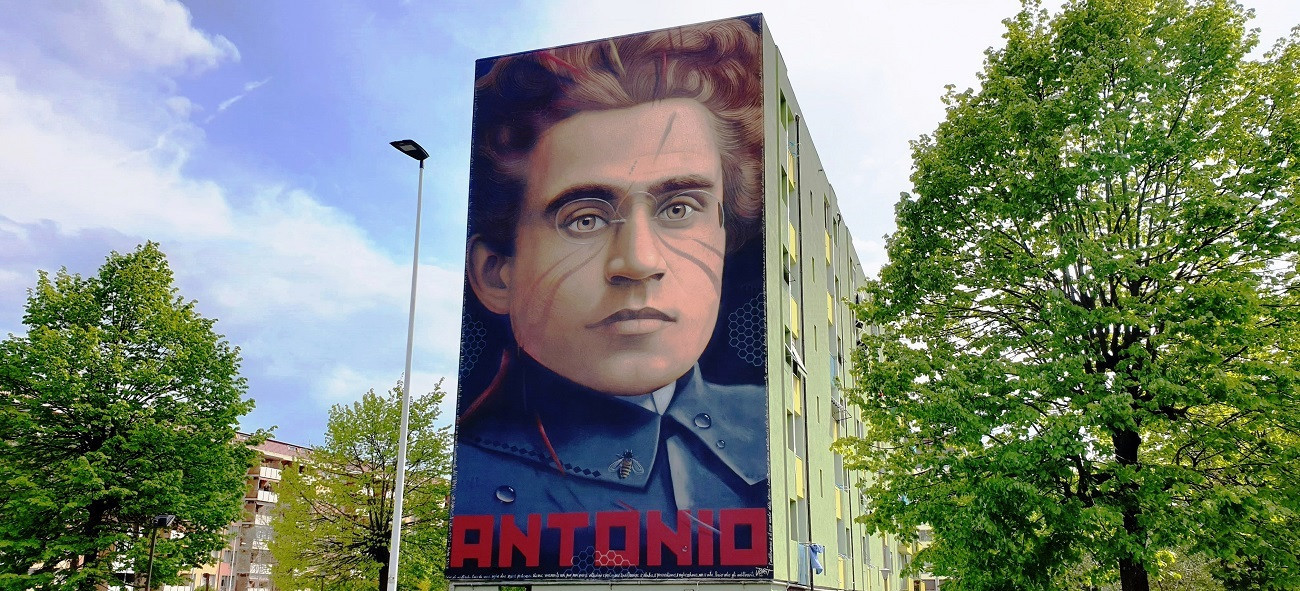
Street Art in Florence - Gramsci by Jorit
This is the second large mural by Jorit in Florence, after the one
dedicated to Nelson Mandela in Piazza Leopoldo (see our blog). Ciro Cerullo,
aka Jorit, is now known all over the world, with his realistic style and a strong
social commitment. He always represents portraits, the most famous ones being in Naples and dedicated
to San Gennaro and Maradona. His characteristic are the long red stripes on the faces of his characters, reminiscent of the ritual decorations of the American
Indians or the Maori of New Zealand.
This mural as well was promoted and financed by the Municipality of
Florence, the Cassa di Risparmio di Firenze, Unicoop, Publiacqua, Teatro
Puccini and Casa Spa, the public company that manages public housing in
Florence and province, owner of the building on which the work was carried out.
It represents Antonio Gramsci (1891 - 1937), an important
historical figure, founder of the Italian Communist Party in 1921 and its
secretary in 1926. The mural occupies an entire external facade of the building
and measures 213 square meters. It is inspired by the most famous photograph by
Gramsci, taken in 1916, when he was 25 years old.
Jorit's working style is interesting: first he writes on the
wall some famous sentences of the personage he will paint, which will then
inspire him in the execution. In this case he used two sentences, taken from Lettere dal Carcere, Gramsci’s most
famous work: "Even when everything
is or seems lost, one must calmly get back to work, starting from the beginning
... The crises consist precisely in the fact that the old dies and the new cannot be born ”.
Some signs that were not included in the Mandela's mural: large drops of water on the jacket, a
bee and hive cells, and at the base, written in capital letters the name ANTONIO.
Unlike the mural dedicated to Mandela, this one has caused
quite a bit of controversy. Gramsci was a great intellectual, he dealt with and
wrote about history, philosophy, theater criticism, literature and even
linguistics, but he was very politically aligned with the communism of the
1930s. He hoped for the elimination of the bourgeois state and for the
establishment of the dictatorship of the proletariat, according to the Soviet
model. He lived for some time in Russia and always supported the Soviet regime
and its politics, at the top of which there was Stalin.
This did not please many, who would have preferred a less
ideologically characterized and more universally recognized figure. The
tenants of the building also complained that they were not consulted. Given
that one of Jorit's most famous works in Naples is dedicated to the football
player Maradona, many have suggested promoting works dedicated to some great
sportsman instead of politicians, also in Florence.
Florence, viale Antonio
Canova.



